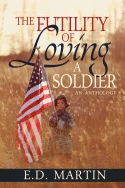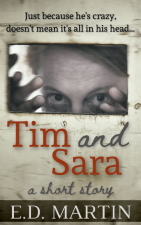The class I taught is part of a national program, and as such, we have a standardized post-test we give at the end of the year (I won’t get started on the idiocy of teaching to the test, I promise). Although I taught high school, many of my students are reading far below grade level, a problem many students across the country face (that I also won’t rant about here).
Here’s one of the test questions:
Which of the following are negative attitudes that create bad feelings toward others?
A. Sympathetic, tolerant, and involved
B. Impartial, decisive, and motivated
C. Idealistic, thrifty, and serious
D. Secretive, complacent and distant
Want to guess how many of my students got that question right?
About 25%.
Several students asked me what sympathetic means, and impartial, and idealistic and thrifty and complacent. Quite a few more just guessed, and got the questions wrong. However, I know if I’d given the kids the question as short answer, they could’ve all answered it correctly.
In another similar situation, a month ago I took some students to a day-long team-building workshop. One of the activities was that the teams had to make various machines (mostly appliances) out of their bodies. It was a lot of fun, except the kids (many being low-income minorities) didn’t know what a food processor was. Or an espresso machine. They lost points as the clock ticked away while we judges tried to explain it to them.
Same thing with logic puzzles – most of the kids had never seen them before, so they didn’t know how to complete them.
What’s this have to do with writing?
Make sure you know your audience. Slang in dialogue, jargon to describe the setting, even big words used unnecessarily – all could alienate your readers. I’m not suggesting that you dumb down your stories; just have in mind who you’re writing for.
For example, I recently read Kim Stanley Robinon’s Mars trilogy. All the characters are scientists, and the books are about the colonization of Mars and the terraforming process. So there are tons of hardcore geology terms, specific rocketry terms, detailed economic terms. For this book, it makes sense because the audience is (presumably) nerds such as myself who revel in accurate, realistic hard science in their sci-fi novels. Now, if the audience were people reading for the romance among the characters, they’d throw it across the room.
Like the test makers I mentioned at the beginning of this post, know your audience’s limitations. Let them reject your story for the plot or characters or theme, not because they can’t understand it.
Have you ever stopped reading something because you couldn’t understand the vocabulary? Or ever had anyone stop reading something of yours because of your word choice?






Great post ED, and very accurate. I’ve seen really good writing pieces fail simply because the writer targeted the wrong audience. It is a very important of the marketing process, and one that should be taken extremely serious when getting the word out. Getting the audience right will certainly cut down on getting negative reviews. Thanks for the post.
Totally agree. I remember my husband throwing his physics articles at me and saying ‘isn’t this interesting?’ But considering I didn’t understand half the words, I couldn’t agree – let alone really concentrate on it more than a paragraph.
Why would it be any different for younger readers? (and I don’t mean with physic books :) )
It made me sad to read your post. As a former teacher how can we expect some kids to know things that are not in their realm of knowledge? Not all of us as adults are interested in the same things, Marketing is a skill and writers have to make the compromise between what they like to write and changing their writing to fit the commercial world.